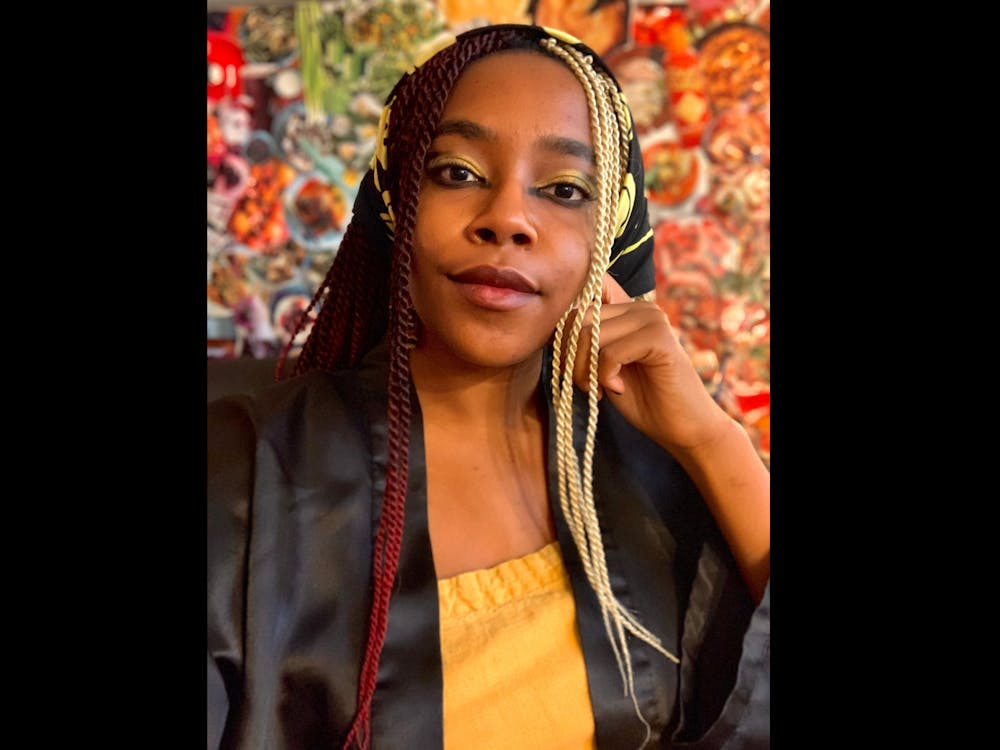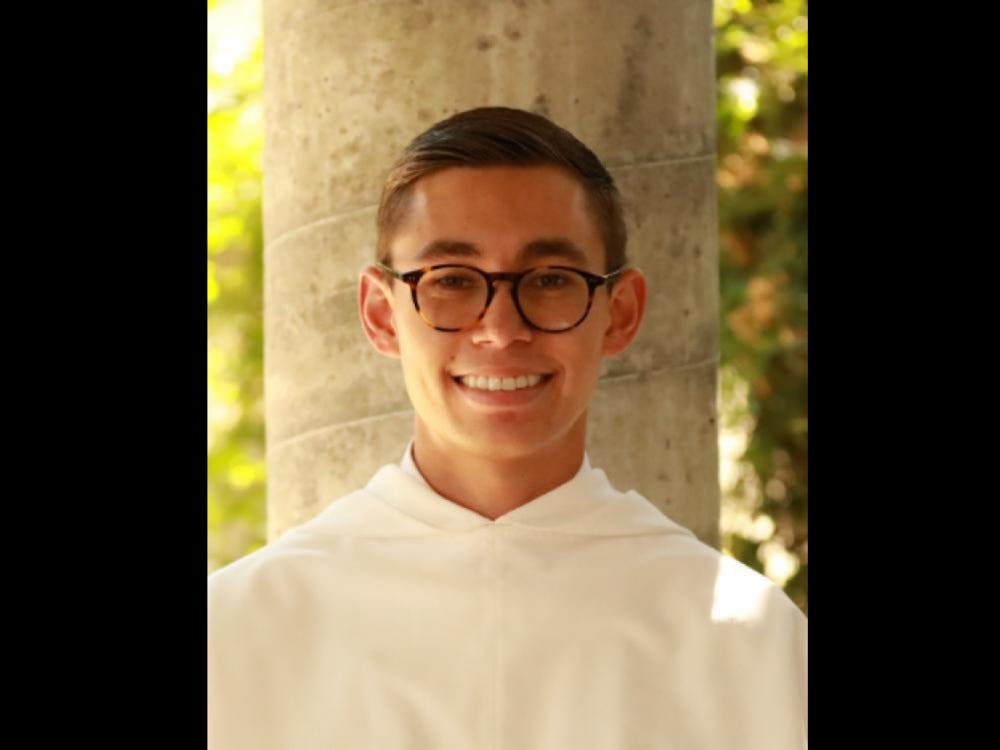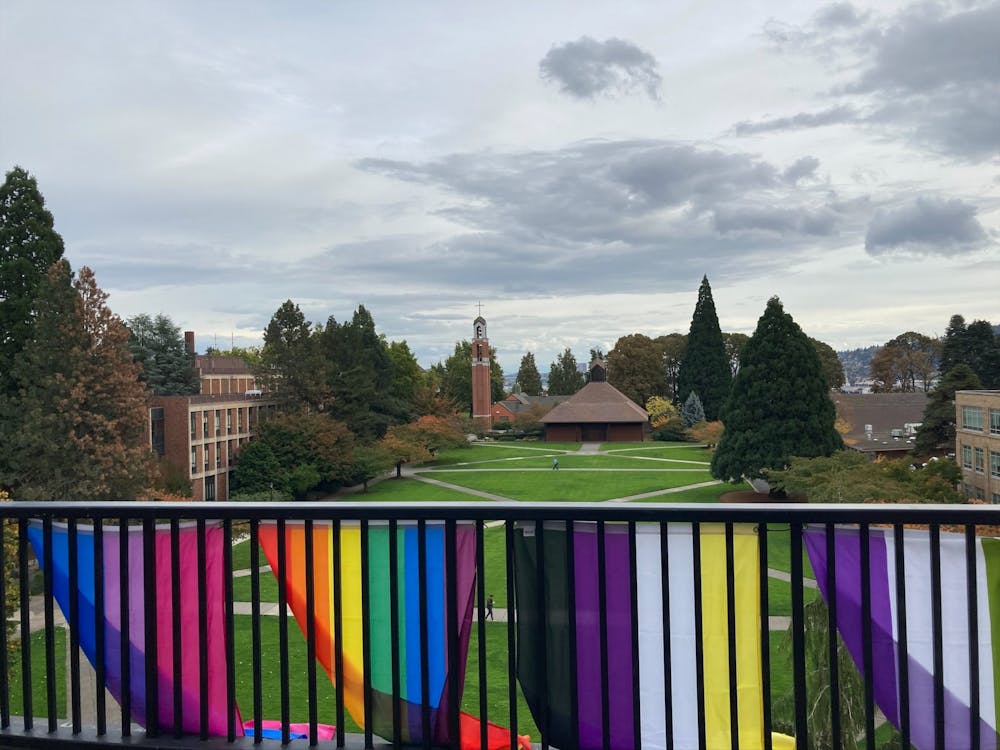Two identities I hold, which I have always struggled with, are being queer and being Catholic. I came out to a handful of friends in high school but did not feel as though I could be fully out at my Catholic school. It was not until I came to the University of Portland that I felt like I could truly be myself. I have the inclusive and welcoming student body to thank for that. I am now a junior here at UP, and since my freshman year I have seen an incredible increase in students that are out and open about being queer.
I have struggled with my Catholic identity for a long time. Many of the teachings of the Catholic Church were incredibly confusing to me when I was younger and it took a lot of learning and listening to grasp onto what I was practicing. Much of which I did not agree with, but some of it has stuck.
I have always believed that Catholicism and the LGBTQ+ community are compatible, and I am thankful for the many Catholic people in my life who have instilled this belief in me.
Being Catholic and attending Catholic schools has been a very important aspect of my growing up and becoming who I am today. I do not currently consider myself a practicing Catholic, but I can see strong correlation to how Catholicism has shaped what I value. Catholic values such as service and gratitude are two of the guiding pillars in my life. When deciding where to go to college, choosing a Catholic school was incredibly important to me because I value the lessons we can learn from teachings such as Catholic Social Teachings. I have been learning about these principles since I was in middle school and I believe within these seven teachings we can find some of the true spirit in which Christ would want us to live today.
1. Life and Dignity of the Human Person: The United States Conference of Catholic Bishops (whom I will be using all definitions for) describes this first principle by saying, “The Catholic Church proclaims that human life is sacred and that the dignity of the human person is the foundation of a moral vision for society.” At the core of Catholic teaching is dignity for the human person and this value has always been present in teachings of the Catholic Church. The people I choose to love should not dictate the level of dignity I am awarded as a human. During my time at UP I have felt as though the students here live out this principle whether they are aware of it or not. I have always been supported, uplifted and cared for by my peers here. It is important to note that the burden of support for the LGBTQ+ community should not just fall on LGBTQ+ students. When the administration, students and all members of the community make a genuine effort to show their care for the dignity of LGBTQ+ people, that is when we strengthen our community.
2. Call to Family, Community, and Participation: The USCCB describes the second principle as, “Marriage and the family are the central social institutions that must be supported and strengthened, not undermined. We believe people have a right and a duty to participate in society, seeking together the common good and well-being of all, especially the poor and vulnerable.” Family is another strong value the Catholic Church holds that is often used in the argument against LGBTQ+ couples due to their inability to “naturally” create a child. If Catholicism values marriage and the family so much I believe all families should be welcome into this call. Same-sex couples produce beautiful families that often uphold the first principle by choosing to adopt children. Representation is an important focus when it comes to support of LGBTQ+ people, and being able to learn from queer professors with successful careers and family lives has given a glimpse into what my life may look like — something I was not exposed to much before college.
3. Rights and Responsibilities: The United States Conference of Catholic Bishops lays out the third principle as, “The Catholic tradition teaches that human dignity can be protected and a healthy community can be achieved only if human rights are protected and responsibilities are met.” Most members of the LGBTQ+ community are fierce advocates for the protection of fundamental human rights for all people. This principle believes these rights are duties and responsibilities we have to each other, our families and society at large. We have the duty to uphold this principle in order to protect our neighbor. Catholic or not, LGBTQ+ or not.
4. Option for the poor and Vulnerable: The USCCB defines this as “A basic moral test of how our most vulnerable members are faring.” The LGBTQ+ community often finds itself on the outskirts of society when it comes to equality in issues such as healthcare and not feeling represented in government. How you treat your vulnerable is a reflection of the life of Jesus Chirst. He modeled this principle during his life by surrounding himself with those who were poor and vulnerable. How your administration and school community treats your LGBTQ+ community is a direct reflection of this behavior. Resources such as clubs, scholarships, mental health resources, and safe housing options are all a few ways that an administration can do this.
5. The Dignity of Work and the Rights of Workers: This fifth principle is about protecting the basic rights of workers. The USCCB says that, “If the dignity of work is to be protected, then the basic rights of workers must be respected.” Even though we live in a world where there is some protection of LGBTQ+ workers, the School of Law at UCLA did research in 2021 about the experience of LGBTQ+ in the workplace. What they found is that there is still a large amount of discrimination the LGBTQ+ communitty faces in the workplace. For example, LGBTQ+ employees of color experienced more verbal harassment than white LGBTQ employees at 36%. It is incredibly important that the University hires a wider scope of LGBTQ+ faculty and staff. Representation is a form of allyship, and having queer professors at Up has been an incredible experience of seeing myself in the people that are leading and teaching me.
6. Solidarity: My personal favorite principle, because, “At the core of the virtue of solidarity is the pursuit of justice and peace.” The USCCB also says, “Our love for all our sisters and brothers demands that we promote peace in a world surrounded by violence and conflict.” Solidarity with the LGBTQ+ community should be one of the simplest ways that UP is caring for their LGBTQ+ students. Pope Paul VI taught us to work for justice if you want peace. It is important for LGBTQ+ students to feel as though their administration is fighting the injustices LGBTQ+ students face. This can be simple, such as the push ASUP is making for more gender neutral bathrooms on campus. But we cannot be blind to these needs for LGBTQ+ students on campus, and we are incredibly lucky for the many student groups that do the bulk of this work.
7. Care for God’s Creation: USCCB says, “We are called to protect people and the planet, living our faith in relationship with all of God’s creation.” The piece that stands out to me is not just the care for creation, but the protection. LGBTQ+ students should be protected from hateful speech that invalidates their identity. Many LGBTQ+ struggles are not voiced, and feeling safe and protected on the outside can help with these struggles.
It is not lost on me that there are likely many Catholics that would disagree with this interpretation. However, my interpretation of Catholicism and specifically this teaching is one of love and acceptance. I believe Catholicism is about loving your neighbor no matter who that may be. Some Catholics truly live their lives this way and some do not. About a year ago, I decided that I will not fight for love and acceptance from the Catholic Church as an institution. There was not enough solidarity for LGBTQ+ people in the physical church, but I believe there is still the capacity of love and solidarity in the Catholic religion.
It is not impossible for the Catholic Church to be compatible with its queer community, and it is also not impossible for the UP administration to do more for their queer students. There will always be progress to be made, that is inevitable. Committing to listening, learning, and taking concrete steps in the right direction is a start.
I hope each queer student at UP knows there is a lifetime of love for them on this campus.
Megan Meckey is a junior at UP. She can be reached at meckey23@up.edu.
Have something to say about this? We’re dedicated to publishing a wide variety of viewpoints, and we’d like to hear from you. Voice your opinion in The Beacon.








